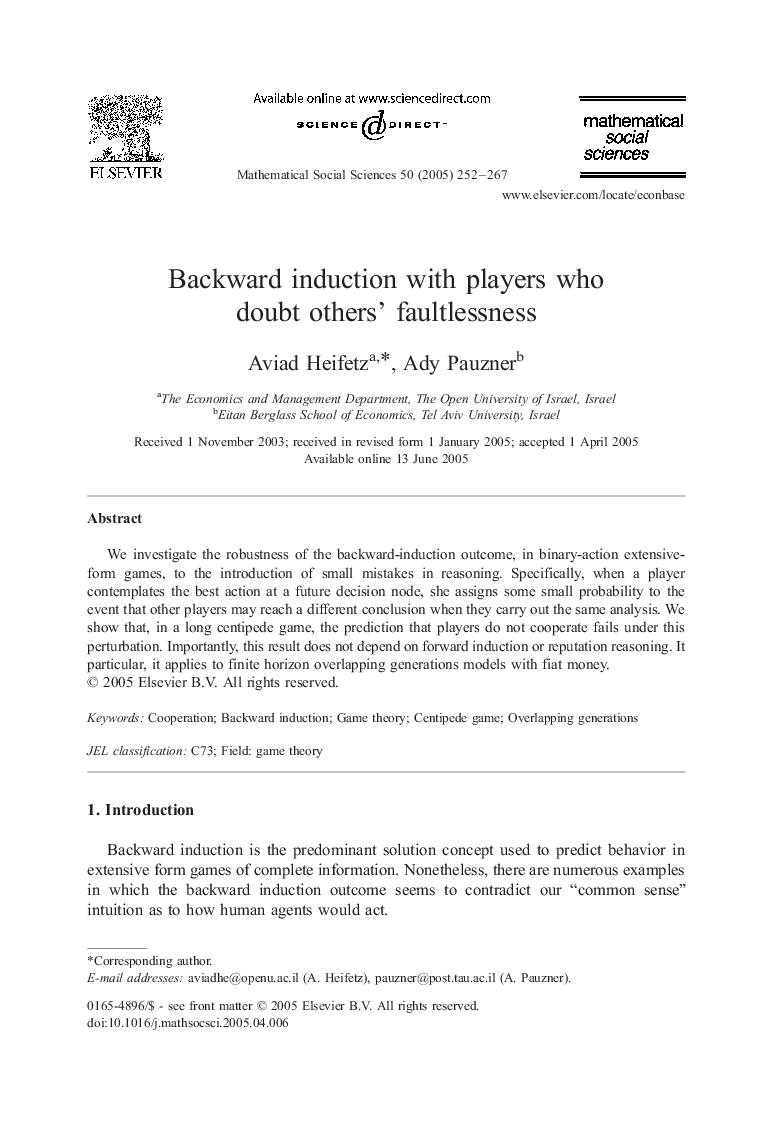| Article ID | Journal | Published Year | Pages | File Type |
|---|---|---|---|---|
| 9727368 | Mathematical Social Sciences | 2005 | 16 Pages |
Abstract
We investigate the robustness of the backward-induction outcome, in binary-action extensive-form games, to the introduction of small mistakes in reasoning. Specifically, when a player contemplates the best action at a future decision node, she assigns some small probability to the event that other players may reach a different conclusion when they carry out the same analysis. We show that, in a long centipede game, the prediction that players do not cooperate fails under this perturbation. Importantly, this result does not depend on forward induction or reputation reasoning. It particular, it applies to finite horizon overlapping generations models with fiat money.
Related Topics
Physical Sciences and Engineering
Mathematics
Applied Mathematics
Authors
Aviad Heifetz, Ady Pauzner,
